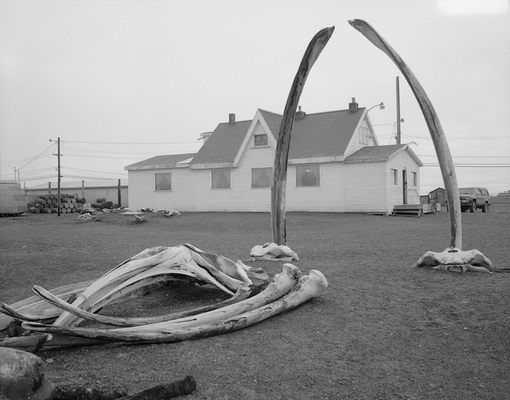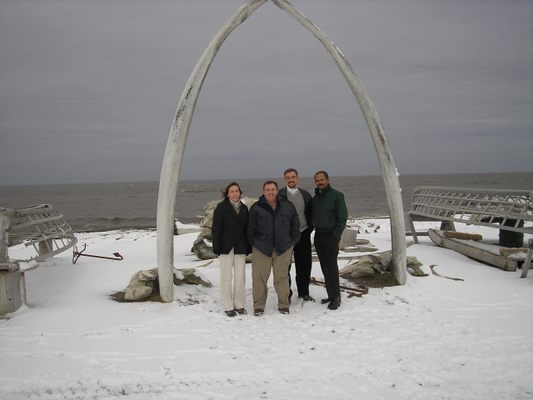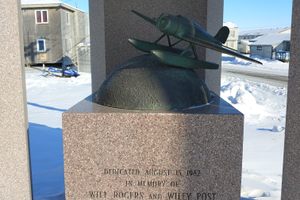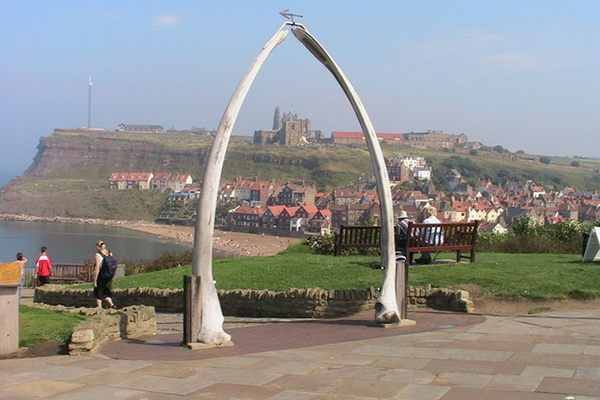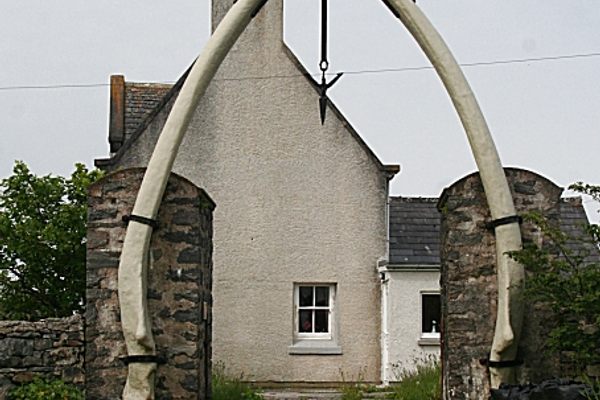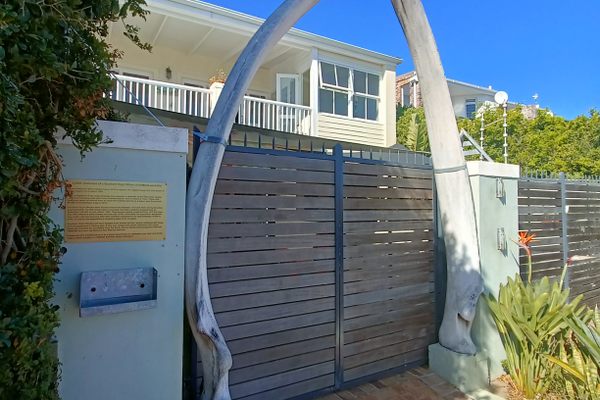About
A bowhead whale's jawbones sit on a beach outside Barrow, composing an archway to the vast Arctic Ocean beyond.
Barrow is not only the northernmost city in the United States, but also the northernmost in Alaska. However, its history with whaling predates its inclusion in the States by centuries, maybe more. Before it was Barrow it was called Ukpeagvik by the Iñupiat who lived there. Whale hunting provided them with almost everything they needed: whale meat for food, skin and bones for boats, houses, clothes, baleen for tools and art, and blubber for oil and just about everything else.
When commercial whaling took a devastating toll on the whale population, hunting was prohibited. The Iñupiat, many of whom still live in Barrow, are allowed to harvest 24 whales a year as part of cultural heritage preservation.
The arch opens up to the Arctic Ocean, symbolizing Barrow's relationship to the sea and whaling. The "Gateway to the Arctic" sits upon a gray pebbled beach with the shells of traditional whaling boats and other bones scattered about. There is little information about the arch's history, though sources date it towards the end of the 19th century.
Related Tags
Published
August 16, 2016

